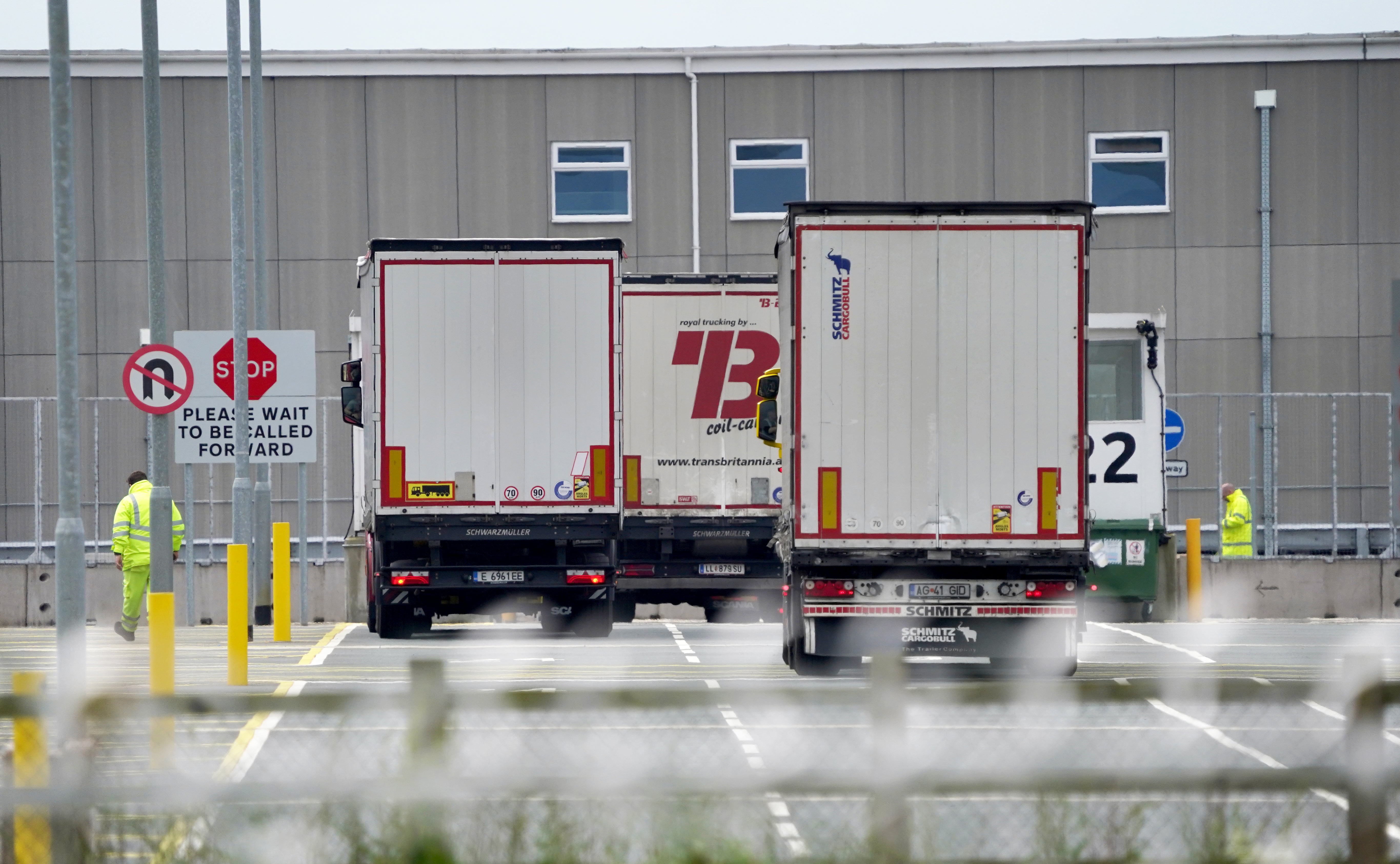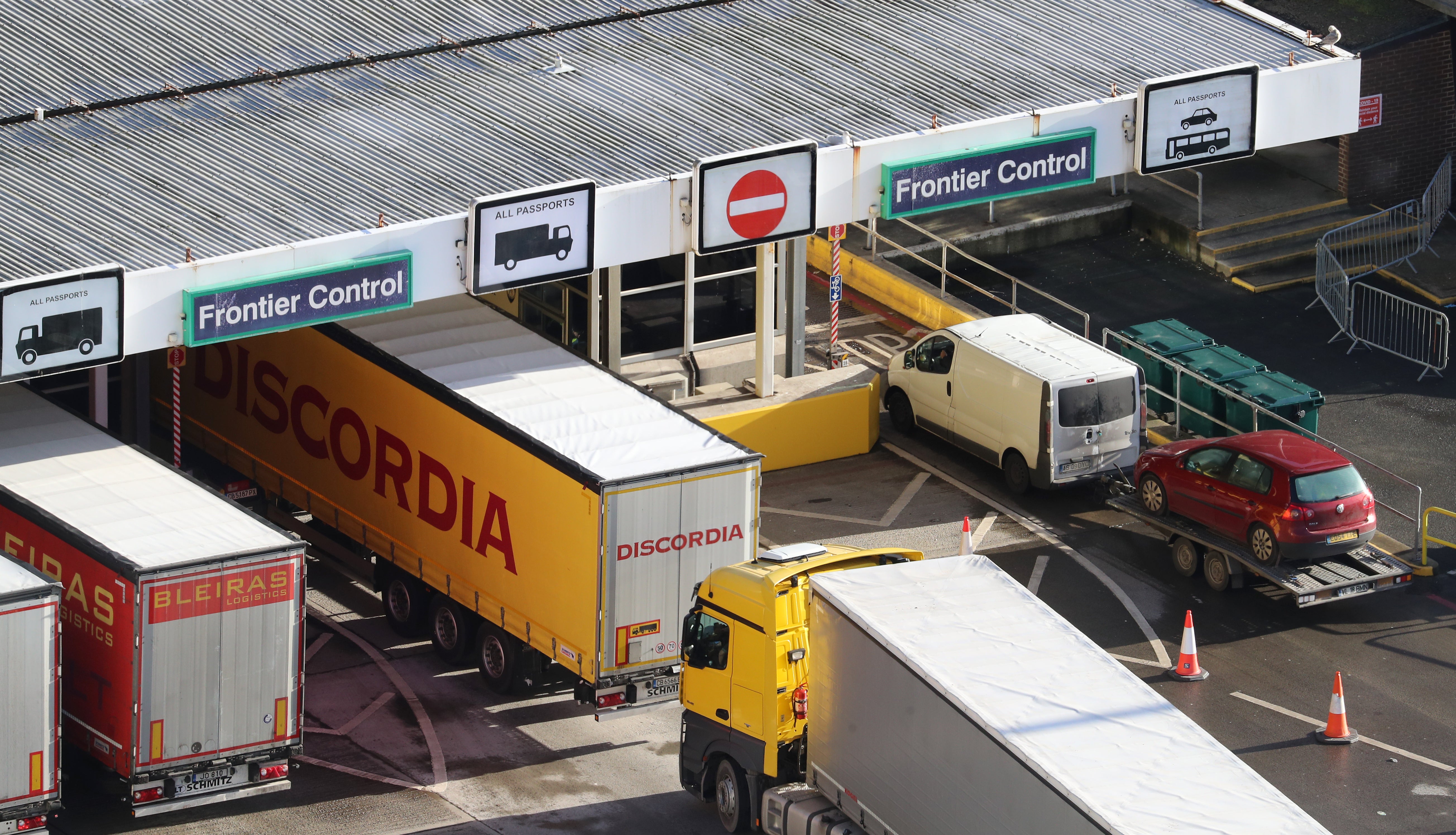£5bn Brexit border checks system still has no timetable for launch, spending watchdog says
The government has no clear timetable to fully implement its post-Brexit border controls with the EU, the National Audit Office warns
Your support helps us to tell the story
From reproductive rights to climate change to Big Tech, The Independent is on the ground when the story is developing. Whether it's investigating the financials of Elon Musk's pro-Trump PAC or producing our latest documentary, 'The A Word', which shines a light on the American women fighting for reproductive rights, we know how important it is to parse out the facts from the messaging.
At such a critical moment in US history, we need reporters on the ground. Your donation allows us to keep sending journalists to speak to both sides of the story.
The Independent is trusted by Americans across the entire political spectrum. And unlike many other quality news outlets, we choose not to lock Americans out of our reporting and analysis with paywalls. We believe quality journalism should be available to everyone, paid for by those who can afford it.
Your support makes all the difference.A post-Brexit border control system designed to “take control” of Britain’s borders has no clear timetable for completion, warned the National Audit Office (NAO) on Monday.
The public spending watchdog said repeated changes and deferrals to the government’s flagship plan for full import controls from the EU was leading to uncertainty for businesses and extra costs for government and ports.
The Border Target Operating Model (BTOM) is being brought in through phases, with the second for animal and plant exports coming in on 30 April. A third part of the model on safety and security declarations is due to be introduced in October - but it’s not clear when full controls will be in place.

The scheme, hoped to make the “world’s most effective border”, lacks a clear timetable and an integrated cross-government delivery plan, said the NAO in a report issued.
The office said that since the transition period concluded at the end of 2020, the government had delayed its plans five times and spent money on infrastructure and staff that were ultimately not needed.
The overall cost of the system is set to be £4.7bn, estimated the NAO.

Gareth Davies, head of the NAO, said: “The UK leaving the EU created a large-scale change in arrangements for the movement of goods across the border. However, more than three years after the end of the transition period, it is still not clear when full controls will be in place.
“The border strategy has ambitious plans to use technology and data to facilitate trade while managing risks. To achieve its objectives, government requires strong delivery and accountability – including a more realistic approach to digital transformation – together with effective monitoring to enable future improvements.”
The BTOM is a new approach to security controls (applying to all imports), and sanitary and phytosanitary controls (applying to imports of live animals, animal products, plants and plant products) at the border.
It sets out how controls will be simplified and digitised, and Britain’s ambition for the UK’s new single trade window - but it’s had critics. Many fear the system will add delays, red tape and costs to many imports, with small and medium-sized businesses to be the most impacted.
The second phase of the border checks system was rolled out on the Easter Monday bank holiday weekend, with Marco Forgione, director general of the Institute of Export and International Trade, claiming it a “smart” move to introduce the additional checks during a time when traffic was going to be reduced.
The report by the NAO did note that border processes, including the introduction of full customs controls, have largely operated smoothly since the UK’s exit from the EU, but said that businesses trading goods between the UK and the EU have faced additional costs and administrative burden.
Martin McTague, national chair of the Federation of Small Businesses, said that the group’s research shows almost one in 10 small firms that used to export or import goods have stopped doing so in the past five years, in part due to the volume of paperwork, costs and supply chain or logistical issues.
He said: “Government needs to ensure that changes are better planned, timetabled and tested to ensure that operations run smoothly. This will minimise damage to trade and indeed our international global reputation.”
Join our commenting forum
Join thought-provoking conversations, follow other Independent readers and see their replies
Comments